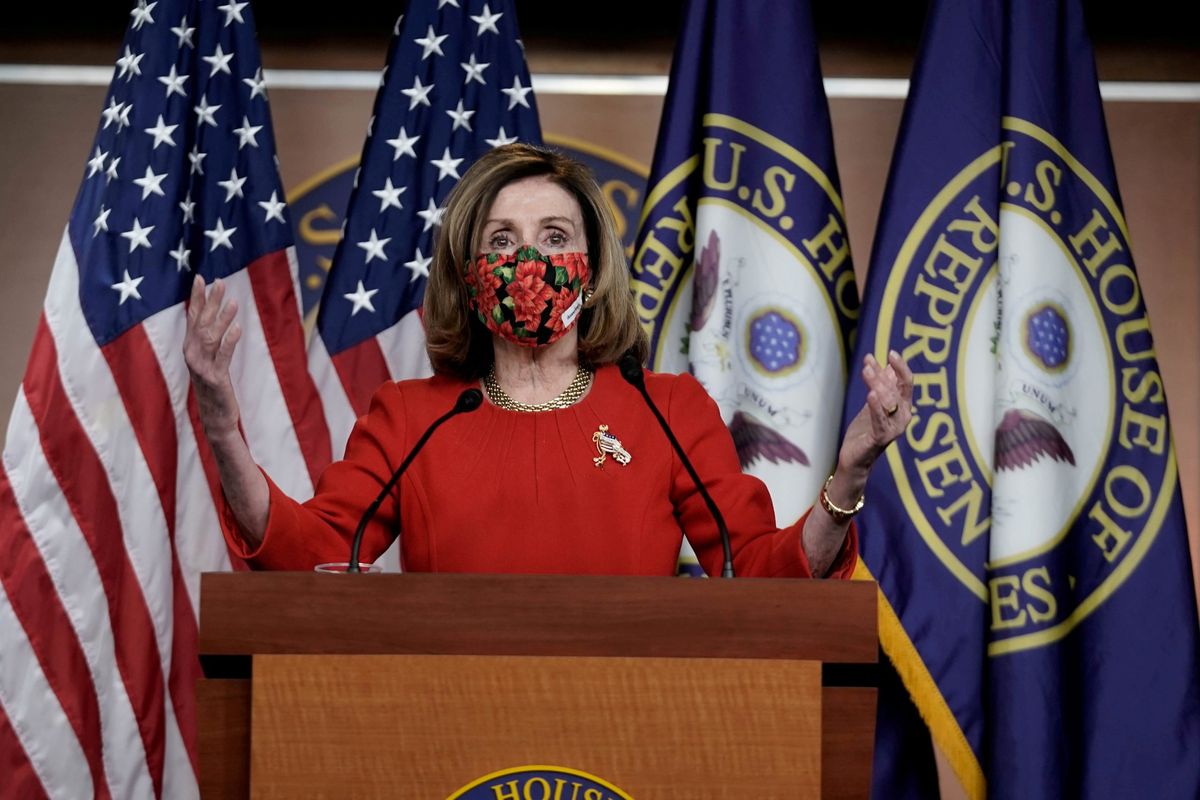Congress meets agreement on US$900 billion aid package after months of gridlock

A few minutes every morning is all you need.
Stay up to date on the world's Headlines and Human Stories. It's fun, it's factual, it's fluff-free.
The upcoming stimulus package is similar to that of March’s and will include direct payments of US$600 to most adults, including US$600 per child.
Negotiators in Washington, DC sealed a deal between Democrats and Republicans on a US$900 billion COVID-19 relief package, placing an end to monthslong gridlock over the issue. The relief package comes as part of a more than US$2 trillion piece of legislation that will provide funding for the government through September.
“There will be another major rescue package for the American people,” said Senate Majority Leader Mitch McConnell in an announcement of the package. “It is packed with targeted policies to help struggling Americans who have already waited too long.”
“It is a first step,” said House Speaker Nancy Pelosi in her announcement, acknowledging the decrease in size from the original bills proposed by Democrats. “We have to do more.”
The upcoming stimulus package is similar to that of March’s and will include direct payments of US$600 to most adults, including US$600 per child. The package will also add US$300 in federal unemployment supplements. In addition, the expanded pandemic-era unemployment eligibility requirements will stay in place for an unspecified amount of time.
It will include US$284 billion going into small business loans through the Paycheck Protection Program (PPP), US$82 billion for schools and colleges, US$45 billion for transportation services and US$30 billion toward vaccine distribution.
The stimulus also directs US$25 billion into rental assistance and extends the federal eviction moratorium from the previous stimulus. Currently, there is no specified end date for the moratorium.
The fight
Since the beginning, Democrats have fought for a larger stimulus of around US$2 trillion. However, McConnell remained critical of a larger bill, pushing a lesser US$519 billion aid package to the Senate floor in October.
In negotiations, Democrats seem to have prioritized unemployment benefits and extended eviction moratorium. Both of these elements will pass in the final bill. Democrats also have historically spoken out in favor of direct relief to state and local government, however this piece was left out of this stimulus round.
Republicans have been expressly supportive of reviving the PPP and small business loans, with emphasis on reopening the economy in place of increasing national debt. McConnell, the leading Republican in Congress, also pushed for liability protections for businesses and corporations, but the issue has been set aside for later negotiation in future stimulus bills.
Both parties generally agreed on direct-payment stimulus checks, though the question of how large the checks should be was a subject for much partisan debate.
The final version of the bill comes as pressure mounted on lawmakers over a looming government shutdown that would have began at midnight on Sunday. Congress passed a one-day spending measure that allowed them Monday to pass the bill which would then approve funding through September.
The presidential victory of former Vice President Joe Biden in November also seems to have put pressure on the Republicans, with Biden being openly supportive of a larger, more extensive stimulus.
What comes next?
Democrats have been open about their plans to push third-round stimulus talks in 2021. “Immediately, starting in the new year, Congress will need to get to work on support for our COVID-19 plan for support to struggling families and investments in jobs and economic recovery,” said Joe Biden. “There will be no time to waste.”
Senate Minority Leader Chuck Schumer indicated that Democrats would again push for aid for state and local governments, a provision that has some Republican support but faces direct opposition from Mitch McConnell.
However, despite McConnell’s pushback, there is a chance it might not need his approval. The Georgia runoff election on Jan. 5 has the potential to tie the Senate representation between Republicans and Democrats, in which case the vice president has the opportunity to be a tiebreaker vote.
In the event both Reverend Raphael Warnock and Jon Ossoff, the Democratic candidates in Georgia, win the election, Democrats would control the House of Representatives, the Senate and the White House, and they would face few obstacles in passing their full docket of stimulus wants.
The initial rollout of the stimulus package, including checks being sent out, is likely to come within the first weeks of January 2021.
Have a tip or story? Get in touch with our reporters at tips@themilsource.com




Comments ()